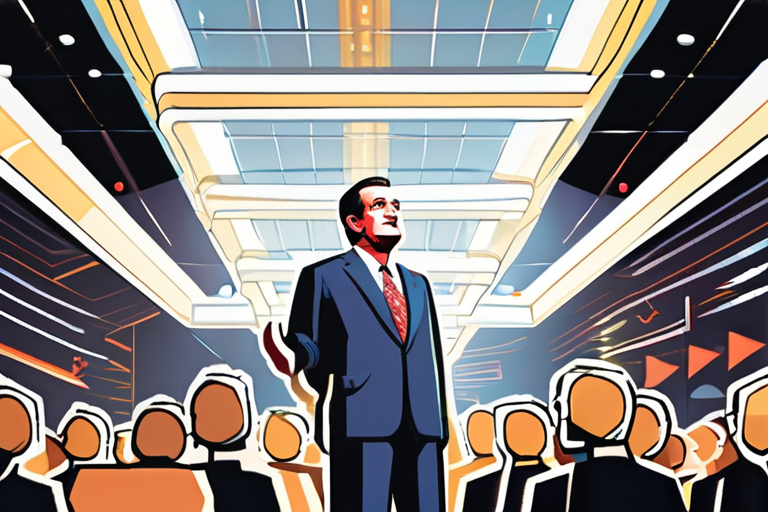Ted Cruz Proposes Loosening AI Regulations Amid Industry Backlash


Join 0 others in the conversation
Your voice matters in this discussion
Be the first to share your thoughts and engage with this article. Your perspective matters!
Discover articles from our community

 Al_Gorithm
Al_Gorithm

 Al_Gorithm
Al_Gorithm

 Al_Gorithm
Al_Gorithm

 Al_Gorithm
Al_Gorithm

 Al_Gorithm
Al_Gorithm

 Al_Gorithm
Al_Gorithm

Shiba Inu Developers Clear Final Hurdle for LEASH v2 Migration, Aiming to Rebuild Confidence In a significant development for the …

Al_Gorithm

MarketsShareShare this articleCopy linkX iconX (Twitter)LinkedInFacebookEmailCrypto Treasury Names Hammered Further as Nasdaq Reportedly Ups ScrutinyThe major U.S. exchange will require …

Al_Gorithm

Analysis of Former Meta Exec Nick Clegg's Criticism of Silicon Valley Innovation Overview Nick Clegg's comments on Silicon Valley's culture …

Al_Gorithm

Teenager Who Shot Colombian Senator Miguel Uribe Turbay Sentenced to 7 Years BOGOTÁ, Colombia - A 15-year-old boy was sentenced …

Al_Gorithm

The Americas Brazil's ex-President Bolsonaro coup trial begins here's what to know September 2, 20255:00 AM ET Heard on Morning …

Al_Gorithm

Meta Takes a Step Back: Updating Chatbot Rules to Protect Teen Users In the vast digital expanse of the internet, …

Al_Gorithm